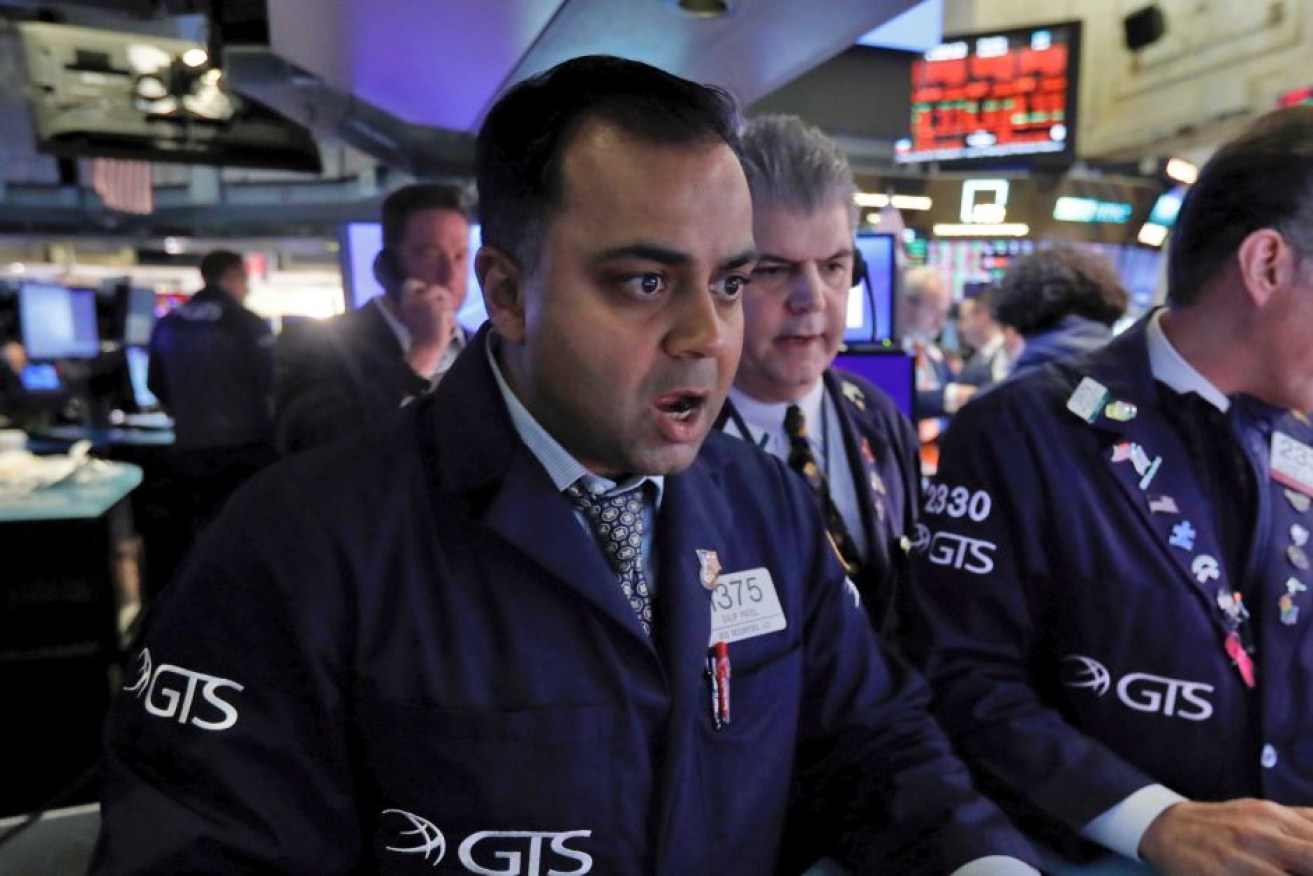How coronavirus and an oil war have pushed the stockmarket from boom to bust

Two simultaneous shocks have propelled this sudden shake-out. Photo: AP/Richard Drew
It has been the longest winning streak in history.
For more than a decade, Wall Street has been on a tear, chewing through records against all the odds to ratchet up an incredible 132 months, easily outstripping the 1990s bull run.
There have been a few blips along the way – the European debt crisis in 2012 and the Brexit vote gave Wall Street a dose of the wobbles, and just 18 months ago, investors began unloading stocks as fears of a global slowdown followed a series of US interest rate hikes.
This time, however, there is a sense that it’s all over.
The losses of the past three weeks have tipped US stocks into what’s known as a bear market – when stocks drop more than 20 per cent from their peak. We’re in exactly the same territory.
Two simultaneous shocks have propelled this sudden shake out.
The first was a virus spreading across the globe that locked down China’s industrial heartland and now all of Italy and potentially much of Europe.
The second is an oil price war that threatens to wreak havoc on America’s heavily indebted oil industry, a war some believe Russia has deliberately started to hurt America.
The end result? First, there is the threat of a global recession that would damage corporate earnings and spark a lift in unemployment.
And then there is the more immediate danger of corporate debt defaults that could send shock waves through the financial system.
The real shock, however, is that all this has taken so long to unwind.
Financial markets have spent the past decade blissfully cocooned from reality, soaring to record highs as the economy barely limped along.
Interest rates hovering at barely above zero – and in some cases below zero – have kept companies alive that should have hit the wall years ago.
Stimulus for jobs, not stocks
On cue, US President Donald Trump announced a stimulus package squarely aimed at protecting employment, particularly in travel-related industries.
That sparked a relief rally on US futures markets and briefly pushed the Australian market into positive territory.
The stimulus sensibly was targeted at the real economy, with the aim of keeping workers employed.
That was in stark contrast to the global financial crisis, where most of America’s energy was directed at propping up the financial system.
Wall Street took precedence over Main Street.
Financial markets are famous for knee-jerk reactions and erratic behaviour and any bounce within the next few weeks is likely to be the sickening thud of a dead cat bounce.
Investment banks are in the business of providing investment advice to investors.
There’s a vested interest in keeping the wheels turning, of creating wealth, regardless of how artificial or fragile the foundations.

Even without coronavirus, the oil price war has the potential to destabilise the delicate global balance on financial markets. Photo: AAP: Stephen Saphore
For years, not all, but many of them have justified the incredible surge in sharemarkets as rational, explaining it all away with mathematical formulae based on lower interest rates.
Markets, we were told, were “priced for perfection” – a term used to explain their lofty valuations.
Except they weren’t. They were priced for underperformance.
Rather than being fuelled by a booming economy, they were fuelled by ultra-cheap, emergency cash rates. Whenever global growth looked to be on the mend, which might result in rates heading back to normal levels, investors took fright.
This time, however, is different.
The climate is looking decidedly worse.
After a decade of extraordinary monetary stimulus and with most developed nation governments carrying far more debt than they’d like, there’s precious little left in reserve.
For as long as this virus remains unchecked and threatening to shut down large slabs of the developed world, spooked investors will head for safety.
That means violent stockmarket movements, with jolts in either direction.
Even without the virus, the oil price war has the potential to destabilise the delicate global balance on financial markets.
While the war is ostensibly between Russia and Saudi Arabia, it is America that is the real target. High oil prices paved the way for the US to become energy self-sufficient.
The oil crash makes a large slab of that uneconomic.
Oil has a history of destabilising economics and politics.
The oil price shocks of the 1970s reshaped the global political landscape as inflation spiked.
The Latin debt crisis a decade later sent shivers through American banking.
Rates to go to zero
Australia was one of the few nations to eschew austerity during the GFC. We had the cash and we spent.
We managed to avoid a recession and we kept more workers employed and more small- and medium-sized businesses operating than otherwise would be the case.
Other nations, particularly in Europe, went the other way.
Many are still struggling with the fallout as a generation of school leavers never found employment.
In the meantime, central banks are preparing to delve back into experimental territory.
Even our own Reserve Bank is dusting off plans on how to inject cash into the system once rates have been cut to 0.25 per cent.
That may come as soon as next month.
–ABC








